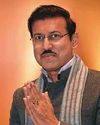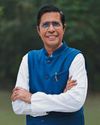
When Neeraj Chopra’s javelin moved through the warm Tokyo air to land at the 87.58-metre mark, a tiny village in northwest India, located 5,847 kilometres away from the Japanese capital, lit up in joy. The joy spread like wildfire to engulf a sixth of humanity. Within hours, children carrying sticks double or sometimes triple their size came out on the streets and started throwing what they imagined were javelins. And a country of 1.4 billion people celebrated its first track-and-field gold at the biggest sporting event in the world.
Four years have since passed by.
Later this month at the Paris Olympics India will not set the Seine on fire, for sure. A couple of trinkets more than the seven we won at Tokyo will get the country preening. However, there is a silent revolution happening. More and more Indians are taking up football, athletics, basketball and a bunch of other activities at a young age. And parents do not mind.
Mugdha Kapoor, 34, a journalist with a national daily, enrolled her four-year-old son at a football academy in Noida. “This year, during the summer vacation, I first took him for karate. He did not like the ‘fighting’,” she says. So, she then took him for skating lessons. “He is having a lovely time and really enjoying himself,” she says. Asked if she thinks she would be fine if her son went on to build a career in sports, she says, “Absolutely. As long as he is successful and happy doing it.”
Kapoor is not alone. “Parents now base their decision on which school to send their child based on the sports that are available,” says Sudeep Kulkarni, founder of Game Theory, a sports training business based out of Bengaluru.
Ready, Set, Go
Esta historia es de la edición July 2024 de Outlook Business.
Comience su prueba gratuita de Magzter GOLD de 7 días para acceder a miles de historias premium seleccionadas y a más de 9,000 revistas y periódicos.
Ya eres suscriptor ? Conectar
Esta historia es de la edición July 2024 de Outlook Business.
Comience su prueba gratuita de Magzter GOLD de 7 días para acceder a miles de historias premium seleccionadas y a más de 9,000 revistas y periódicos.
Ya eres suscriptor? Conectar

From Chandni Chowk to Global Recognition
For Manish Aggarwal, director at Bikano, Bikanervala Foods, the family business was not just a responsibility but a passion he took to the global stage

Spotting AI Scams
Al has become an integral part of our lives, from customer service no insurance claims. But it is also becoming a tool for fraudsters who use it to scam individuals and corporations

Let a Hundred Flowers Bloom
On the banks of the Ganges in industrial Kanpur, a start-up has blossomed that turns waste flowers into incense

BATTERY LOW
India produces enough green energy to power many of its largest cities yet lacks the storage to use it efficiently. A nation blazing forward must leap ahead in battery technology to stay on course

We Have Everything Going for Rajasthan
Rajyavardhan Singh Rathore, Rajasthan’s industry and commerce minister, tells Pushpita Dey why the state is suited to become a hub for investments.

Dairy and Other Dilemmas
India’s refusal to open its dairy market has complicated trade negotiations for years. As global partners demand concessions, is the cost of protectionism outweighing benefits?

Riding in a Maze
As gig workers ride into an uncertain future with little more than a smartphone and a bike, the government is struggling to arrange a socialsafety net. But millions without social security is recipe for disaster

BIRLA'S BIGGEST BATTLE
As Kumar Mangalam Birla completes 30 years at the helm of the Aditya Birla Group, he has a battle to defend his businesses and conquer new ones

THE INNOVATION LEAP
India dreams of becoming a product nation. But unless the corporate sector significantly increases spending on R&D, the country will continue to lag behind global peers

EDUCATION BUDGET MUST DOUBLE EVERY 3 YEARS
Veezhinathan Kamakoti, a renowned academic and director of Indian Institute of Technology Madras, tells Deepsekhar Choudhury on what technology sovereignty means for India and how it can propel the country towards its vision of becoming a developed nation by 2047.